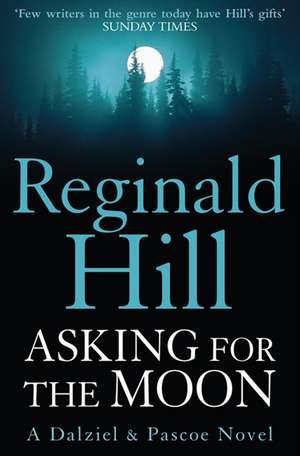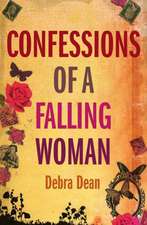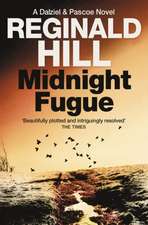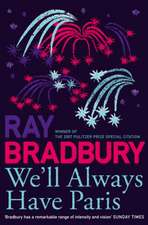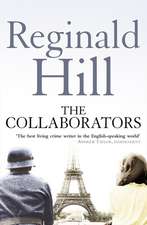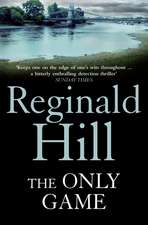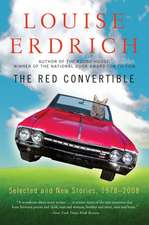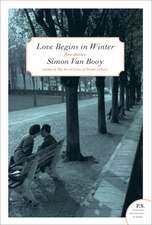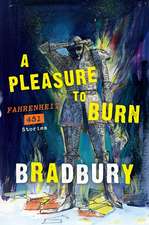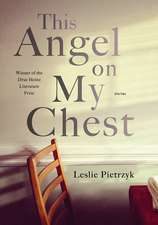Asking for the Moon
Autor Reginald Hillen Limba Engleză Paperback – 25 iun 2009
| Toate formatele și edițiile | Preț | Express |
|---|---|---|
| Paperback (2) | 44.09 lei 3-5 săpt. | |
| PENGUIN RANDOM HOUSE LLC – 6 apr 1998 | 44.09 lei 3-5 săpt. | |
| Harper Collins Publishers – 25 iun 2009 | 82.65 lei 6-8 săpt. |
Preț: 82.65 lei
Nou
Puncte Express: 124
Preț estimativ în valută:
15.81€ • 16.51$ • 13.09£
15.81€ • 16.51$ • 13.09£
Carte tipărită la comandă
Livrare economică 04-18 aprilie
Preluare comenzi: 021 569.72.76
Specificații
ISBN-13: 9780007313150
ISBN-10: 0007313152
Pagini: 400
Dimensiuni: 128 x 199 x 24 mm
Greutate: 0.29 kg
Editura: Harper Collins Publishers
Locul publicării:United Kingdom
ISBN-10: 0007313152
Pagini: 400
Dimensiuni: 128 x 199 x 24 mm
Greutate: 0.29 kg
Editura: Harper Collins Publishers
Locul publicării:United Kingdom
Recenzii
'Few writers in the genre today have Hill's gifts: formidable intelligence, quick humour, compassion and a prose style that blends elegance and grace' Donna Leon, Sunday Times 'The fertility of Hill's imagination, the range of his power, the sheer quality of his literary style never cease to delight' Val McDermid, Sunday Express 'He is probably the best living male crime writer in the English-speaking world' Andrew Taylor, Independent 'Reginald Hill's novels are really dances to the music of time, his heroes and villains interconnecting, their stories entwining' Ian Rankin, Scotland on Sunday
Notă biografică
Reginald Hill has been widely published both in England and in the United States and has been justly compared with P.D. James and Ruth Rendell. He received Britain's most coveted mystery writers' award, the Cartier Diamond Dagger Award, as well as the Golden Dagger Award for his Dalziel/Pascoe series. Reginald Hill writes thrillers under the name Patrick Ruell. He lives with his wife in Cumbria, England.
Extras
From "Pascoe's Ghost"
Truth is not always in a well . . .The depth lies in the valleys where we seek her, and not upon the mountain tops where she is found.
--The Chevalier C. Auguste Dupin
Oh, the bells, bells, bells! What a tale their terror tells.
The phone rang.
Swithenbank heard his mother answer it.
"John!" she called. "It's for you."
Stuffing the last fragments of toast into his mouth, he rose and went into the hall.
"Hello," he said.
Everything was quiet. It was like being in church. The morning sun could only manage a dim religious light through the circle of stained glass in the front door and the smell of pine-scented polish was as heavy as incense on the dank autumn air. Could he not have noticed how cold it was here in his childhood? He vowed to bring an electric blanket if he came at Christmas. If he came.
"Hello? Hello!" he said and put the receiver down.
"Mother!" he called.
Mrs Swithenbank appeared at the head of the stairs. Her hair was a deep shade of lavender this month. For a woman in her late fifties, she had a trim elegant figure despite an enormous appetite which she never hesitated to indulge.
"Who was it on the phone?" asked her son.
"Didn't she tell you, dear?"
"She? No, the line was dead."
"Was it? Oh dear. Perhaps she'll ring again."
"Didn't she give a name?"
"I think so, dear. I always ask who's calling. In case it's Boris or one of the others so I can say you're out. Though I don't really like to lie."
"It's just the modern equivalent of the butler saying I'm not at home, Mother," said Swithenbank in exasperation. "So, what did this woman say?"
"Well, to tell the truth, I didn't really catch it, she had such a funny voice. Very distant somehow. But it wasn't Boris or any of the others. I mean, I know it wasn't Boris, because it was a girl. But it wasn't Stella or Ursula either, or I'd have said."
"Oh Mother!"
"It sounded a very odd name," she said defensively. "Una something, I think. I'm sorry I missed it, but after all, dear, I'm not your secretary. I'm sure she'll ring again."
The phone rang.
Swithenbank snatched it up.
"Wearton two-seven-nine," he said.
"John, dear fellow! Caught you at last. How are you?"
"Hello, Boris," said Swithenbank, scowling at his mother's retreating back. "I'm fine. I was going to call before I went back."
"I would be devastated if you didn't. In fact that's why I'm ringing really. I'm having a few of the locals round for drinks tomorrow, Saturday, about seven-thirty. I thought I'd ask our old gang to hang on for a bite of supper afterwards. You know, Stella and Geoff, Ursula and Peter."
"I know who the old gang are," said Swithenbank acidly.
"We're all dying to see you again. It's been six months at least since you were last in Wearton. Just before Father died, wasn't it?"
"Yes. I'm sorry I couldn't make it to the funeral, Boris."
"Don't worry. We all understand. It's been difficult for you." The voice dropped a sympathetic semi-tone. "No word yet? On Kate, I mean."
"No," said Swithenbank shortly.
"It must be awful for you. Awful. It's a year now, isn't it?"
"That's right. A year."
"Twelve months, and nothing. Awful. Cheer up, though. I suppose no news is good news."
"I can't imagine why you should suppose that," said Swithenbank.
"I'm sorry. What I meant was . . . look, do try to get along tomorrow night, won't you?"
"I can't promise, Boris. I'll give you a ring later if I may."
"Fine. Good. Excellent. 'Bye!"
Swithenbank was smiling as he put down the phone. He went into the kitchen where his mother was washing the dishes.
"That girl on the phone. The name couldn't have been Ulalume, could it?"
"Ulalume? Yes, that sounds very like it, though it doesn't sound very likely, does it? By the way, I'm going into town when I've finished these. I'll probably have lunch there."
"Mother," said Swithenbank wearily. "You've been going into town and having lunch there on Fridays for the last twenty years at least. Everyone in Wearton expects it. I expect it. I can only hope that you may be visiting the hairdresser, too. But I cannot be surprised."
"I'm not trying to surprise you, dear," said his mother mildly.
Fifteen minutes later he heard her call goodbye as she passed the open sitting-room door. Almost simultaneously the phone rang.
By the time he got into the entrance hall his mother had picked up the receiver.
"It's that girl again, dear," she said. "I must dash or I'll miss my bus. 'Bye!"
He did not touch the phone till he heard the front door close behind her.
"Hello? Hello?" he said.
For twenty seconds or more there was no reply then as from a great distance a thin infinitely melancholy voice said, "Ulalume . . . Ulalume," stretching the words out like a street-vendor's cry.
"For God's sake, stop fooling around!" commanded Swithenbank, his voice authoritative and controlled. But the control disappeared when a voice behind him said, "Mr John Swithenbank?"
He spun round. Standing in the open doorway was a man, tall, slim beneath a short fawn raincoat, early thirties, rather a long nose, mop of brown hair falling over his brow and shadowing the light blue, watchful eyes.
"Who the hell are you?" demanded Swithenbank.
"I met a lady on the drive--she said just to walk in. Something about the bell not working."
He reached out of the door and pressed the bell-push. A deafening chime echoed round the hall. He looked embarrassed.
"I'm sorry," he said. "I'm interrupting your call. I'll wait outside, shall I, till you're finished."
"It is finished, said Swithenbank, replacing the receiver firmly. "What do you want with me, Mr . . . ?"
"Inspector. Detective-Inspector Pascoe," said the man. "Could I speak with you, Mr Swithenbank? It's about your wife."
"You'd better come in," said Swithenbank. "Hang your coat up if you think it's going to be worth it."
Pascoe wiped his feet, removed his coat, and carefully hung it up on the old-fashioned hall-stand which loomed like a multiple gallows behind the door.
Truth is not always in a well . . .The depth lies in the valleys where we seek her, and not upon the mountain tops where she is found.
--The Chevalier C. Auguste Dupin
Oh, the bells, bells, bells! What a tale their terror tells.
The phone rang.
Swithenbank heard his mother answer it.
"John!" she called. "It's for you."
Stuffing the last fragments of toast into his mouth, he rose and went into the hall.
"Hello," he said.
Everything was quiet. It was like being in church. The morning sun could only manage a dim religious light through the circle of stained glass in the front door and the smell of pine-scented polish was as heavy as incense on the dank autumn air. Could he not have noticed how cold it was here in his childhood? He vowed to bring an electric blanket if he came at Christmas. If he came.
"Hello? Hello!" he said and put the receiver down.
"Mother!" he called.
Mrs Swithenbank appeared at the head of the stairs. Her hair was a deep shade of lavender this month. For a woman in her late fifties, she had a trim elegant figure despite an enormous appetite which she never hesitated to indulge.
"Who was it on the phone?" asked her son.
"Didn't she tell you, dear?"
"She? No, the line was dead."
"Was it? Oh dear. Perhaps she'll ring again."
"Didn't she give a name?"
"I think so, dear. I always ask who's calling. In case it's Boris or one of the others so I can say you're out. Though I don't really like to lie."
"It's just the modern equivalent of the butler saying I'm not at home, Mother," said Swithenbank in exasperation. "So, what did this woman say?"
"Well, to tell the truth, I didn't really catch it, she had such a funny voice. Very distant somehow. But it wasn't Boris or any of the others. I mean, I know it wasn't Boris, because it was a girl. But it wasn't Stella or Ursula either, or I'd have said."
"Oh Mother!"
"It sounded a very odd name," she said defensively. "Una something, I think. I'm sorry I missed it, but after all, dear, I'm not your secretary. I'm sure she'll ring again."
The phone rang.
Swithenbank snatched it up.
"Wearton two-seven-nine," he said.
"John, dear fellow! Caught you at last. How are you?"
"Hello, Boris," said Swithenbank, scowling at his mother's retreating back. "I'm fine. I was going to call before I went back."
"I would be devastated if you didn't. In fact that's why I'm ringing really. I'm having a few of the locals round for drinks tomorrow, Saturday, about seven-thirty. I thought I'd ask our old gang to hang on for a bite of supper afterwards. You know, Stella and Geoff, Ursula and Peter."
"I know who the old gang are," said Swithenbank acidly.
"We're all dying to see you again. It's been six months at least since you were last in Wearton. Just before Father died, wasn't it?"
"Yes. I'm sorry I couldn't make it to the funeral, Boris."
"Don't worry. We all understand. It's been difficult for you." The voice dropped a sympathetic semi-tone. "No word yet? On Kate, I mean."
"No," said Swithenbank shortly.
"It must be awful for you. Awful. It's a year now, isn't it?"
"That's right. A year."
"Twelve months, and nothing. Awful. Cheer up, though. I suppose no news is good news."
"I can't imagine why you should suppose that," said Swithenbank.
"I'm sorry. What I meant was . . . look, do try to get along tomorrow night, won't you?"
"I can't promise, Boris. I'll give you a ring later if I may."
"Fine. Good. Excellent. 'Bye!"
Swithenbank was smiling as he put down the phone. He went into the kitchen where his mother was washing the dishes.
"That girl on the phone. The name couldn't have been Ulalume, could it?"
"Ulalume? Yes, that sounds very like it, though it doesn't sound very likely, does it? By the way, I'm going into town when I've finished these. I'll probably have lunch there."
"Mother," said Swithenbank wearily. "You've been going into town and having lunch there on Fridays for the last twenty years at least. Everyone in Wearton expects it. I expect it. I can only hope that you may be visiting the hairdresser, too. But I cannot be surprised."
"I'm not trying to surprise you, dear," said his mother mildly.
Fifteen minutes later he heard her call goodbye as she passed the open sitting-room door. Almost simultaneously the phone rang.
By the time he got into the entrance hall his mother had picked up the receiver.
"It's that girl again, dear," she said. "I must dash or I'll miss my bus. 'Bye!"
He did not touch the phone till he heard the front door close behind her.
"Hello? Hello?" he said.
For twenty seconds or more there was no reply then as from a great distance a thin infinitely melancholy voice said, "Ulalume . . . Ulalume," stretching the words out like a street-vendor's cry.
"For God's sake, stop fooling around!" commanded Swithenbank, his voice authoritative and controlled. But the control disappeared when a voice behind him said, "Mr John Swithenbank?"
He spun round. Standing in the open doorway was a man, tall, slim beneath a short fawn raincoat, early thirties, rather a long nose, mop of brown hair falling over his brow and shadowing the light blue, watchful eyes.
"Who the hell are you?" demanded Swithenbank.
"I met a lady on the drive--she said just to walk in. Something about the bell not working."
He reached out of the door and pressed the bell-push. A deafening chime echoed round the hall. He looked embarrassed.
"I'm sorry," he said. "I'm interrupting your call. I'll wait outside, shall I, till you're finished."
"It is finished, said Swithenbank, replacing the receiver firmly. "What do you want with me, Mr . . . ?"
"Inspector. Detective-Inspector Pascoe," said the man. "Could I speak with you, Mr Swithenbank? It's about your wife."
"You'd better come in," said Swithenbank. "Hang your coat up if you think it's going to be worth it."
Pascoe wiped his feet, removed his coat, and carefully hung it up on the old-fashioned hall-stand which loomed like a multiple gallows behind the door.
